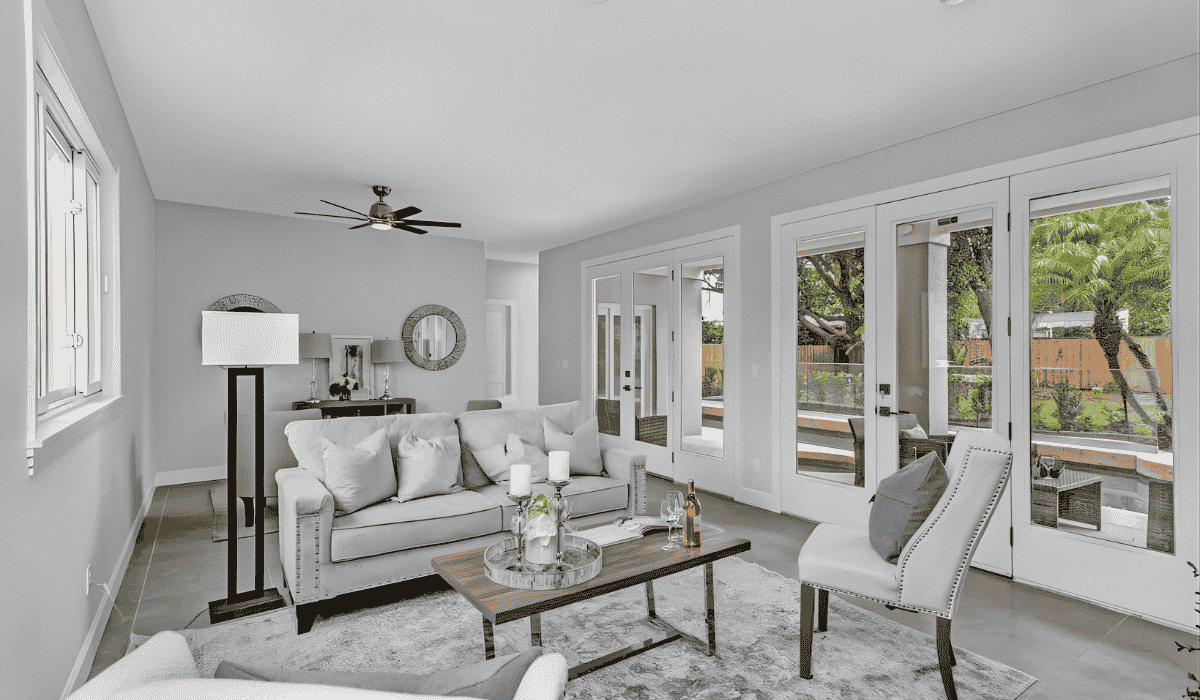How to Choose the Right Neighborhood for Your Family
Choosing the right neighborhood for your family is a decision that can significantly impact your quality of life.
Whether you’re moving to a new city or just across town, finding a neighborhood that suits your family’s needs requires careful consideration of various factors.
Here’s a comprehensive guide to help you navigate this important decision:
Safety and Security
When evaluating safety and security in a neighborhood, it’s essential to delve deeper into factors beyond crime rates alone.
Consider the presence of emergency services like fire stations and hospitals, which can significantly impact response times in critical situations.
Additionally, observe the condition of sidewalks and roads—well-maintained infrastructure not only enhances safety but also reflects a community’s commitment to its residents’ well-being.
Engage with locals during visits to gain firsthand insights into the area’s safety culture and community spirit, ensuring a comprehensive assessment before making your decision.
Schools and Education
In addition to academic performance and extracurricular activities, it’s important to consider the availability of special education programs and support services within the schools.
These resources can be critical for children with diverse learning needs.
Furthermore, explore the school’s approach to discipline and student well-being to ensure a positive and supportive learning environment for your children.
Taking the time to visit schools and meet with administrators, teachers, and current parents can provide valuable insights into the school’s culture and community involvement, helping you make an informed decision that aligns with your family’s educational values and goals.
Amenities and Convenience
When assessing amenities and convenience in a neighborhood, it’s beneficial to look beyond the basics and consider the variety and quality of nearby establishments.
Look for diverse dining options, entertainment venues, and shopping centers that cater to different tastes and preferences within your family.
Proximity to libraries, community centers, and cultural institutions can enrich daily life and provide educational opportunities.
Additionally, evaluate the condition of sidewalks, bike lanes, and public parks for accessibility and safety, enhancing your family’s ability to enjoy outdoor activities and exercise.
Taking the time to explore these factors can help ensure that your chosen neighborhood supports a balanced and fulfilling lifestyle for you and your loved ones.
Community and Environment
When evaluating the community and environment of a neighborhood, consider the availability of green spaces and recreational facilities that encourage outdoor activities and social interactions among residents.
Look for well-maintained parks, playgrounds, and community centers that foster a sense of belonging and promote healthy lifestyles for families.
Additionally, observe the cleanliness and upkeep of public spaces, which can reflect community pride and engagement.
Engage with local residents during visits to understand the neighborhood’s social dynamics and cultural diversity, ensuring compatibility with your family’s values and interests.
Active neighborhood associations or clubs can also indicate a vibrant community that values collaboration and mutual support among its members.
Housing Affordability and Property Values
When considering housing affordability and property values in a neighborhood, it’s crucial to establish a clear and realistic budget that aligns with your financial situation.
Research current property values and trends in the area to understand whether housing prices are stable, increasing, or decreasing over time.
This knowledge can help you make informed decisions about potential long-term investments and resale opportunities.
Evaluate housing options that not only fit your family’s current size and lifestyle but also consider future needs and growth.
Look for properties that offer amenities and features that are important to you, whether it’s proximity to schools, parks, or public transportation.
Take into account factors such as property taxes, homeowners association fees (if applicable), and maintenance costs when calculating overall affordability.
Healthcare Facilities
When evaluating a neighborhood, it’s essential to consider access to healthcare facilities, which are vital for both emergency situations and routine medical care.
Research the proximity of hospitals, urgent care centers, clinics, and pharmacies to ensure they are easily accessible from your prospective home.
Assess the quality of healthcare facilities by researching their reputation, services offered, and patient reviews.
Look for hospitals with specialized departments such as pediatrics, maternity, and emergency care, depending on your family’s needs.
Proximity to healthcare providers can reduce travel time during emergencies and ensure convenient access to regular check-ups and treatments, contributing to your family’s overall well-being and peace of mind.
Neighborhood Demographics
Exploring the demographics of a neighborhood is crucial to finding a community that aligns with your family’s values and lifestyle preferences, as well as your real estate investment goals.
Consider the age groups present in the area—whether it’s predominantly young families, retirees, or a mix of generations.
This demographic makeup can influence not only the community dynamics and available amenities but also the types of properties available for sale or rent.
Diversity is another important factor to consider.
A diverse neighborhood can offer cultural richness and opportunities for learning and growth, impacting both community cohesion and property values.
It’s beneficial to evaluate if the community embraces inclusivity and celebrates different backgrounds and traditions, as this can contribute to the attractiveness and resilience of real estate investments in the area.
Environmental Factors
When choosing a neighborhood, it’s essential to assess environmental factors that can affect your family’s health and well-being over time.
Start by examining air quality levels, which can be influenced by nearby industrial activities, traffic congestion, or geographical features.
Poor air quality may contribute to respiratory issues, especially for young children and individuals with pre-existing conditions.
Evaluate noise levels in the neighborhood, particularly during different times of day and night.
High noise levels from traffic, nearby airports, or industrial sites can disrupt sleep patterns and overall quality of life.
Conversely, quieter residential areas can offer a more peaceful living environment conducive to relaxation and concentration.
Future Development and Stability
When considering a neighborhood for your family, it’s important to research future development plans to anticipate how the area may evolve over time.
Understanding these plans can provide insights into potential changes in property values and community infrastructure.
Start by investigating municipal or city planning documents to learn about upcoming projects such as new residential developments, commercial expansions, or infrastructure improvements like road upgrades or public transportation enhancements.
These developments can enhance property values and contribute to a more vibrant community environment.
Personal Preferences and Lifestyle
Ultimately, choosing the right neighborhood for your family should revolve around aligning with your personal preferences and lifestyle goals.
Consider what matters most to you and your family members as you evaluate different neighborhoods.
If outdoor activities are a priority, look for neighborhoods with nearby parks, trails, or recreational facilities where you can enjoy nature and stay active.
Families who value cultural amenities may prefer neighborhoods with museums, theaters, art galleries, or diverse dining options that cater to different tastes.
Conclusion
Choosing the right neighborhood involves balancing practical considerations with personal preferences to create a comfortable and fulfilling environment for your family.
By researching factors such as safety, schools, amenities, community vibe, and future development, you can make an informed decision that aligns with your lifestyle goals and values.
If you’re ready to explore neighborhoods in the Greater Atlanta area or have questions about finding the perfect community for your family, contact us at The Perfect Piece Atlanta .
Our team is here to help you navigate your home search journey with expert guidance and personalized assistance.
FAQs
What factors should I consider when choosing a neighborhood for my family?
Choosing a neighborhood involves assessing several factors such as safety, schools, amenities, community dynamics, housing affordability, healthcare access, demographics, environmental conditions, future development plans, and personal lifestyle preferences.
How can I evaluate the safety and security of a neighborhood?
Beyond crime rates, consider factors like emergency service availability, infrastructure condition (such as sidewalks and roads), and community engagement. Engaging with locals and visiting the area at different times can provide insights into the safety culture and overall security.
What should I look for in terms of schools and education?
Evaluate not only academic performance but also the availability of special education programs, extracurricular activities, and support services. Visiting schools and meeting with educators and parents can offer a deeper understanding of the school’s culture and its alignment with your family’s educational values.
How important are amenities and convenience in choosing a neighborhood?
Amenities like dining options, entertainment venues, shopping centers, libraries, and parks contribute to daily convenience and lifestyle satisfaction. Accessible and well-maintained public spaces enhance the quality of life for families by promoting outdoor activities and social interactions.
What role does community and environment play in selecting a neighborhood?
A neighborhood with green spaces, recreational facilities, and a strong sense of community can foster a supportive environment for families. Evaluating community engagement, cultural diversity, and the upkeep of public areas can help determine compatibility with your family’s values and social preferences.
How can I assess housing affordability and property values in a neighborhood?
Research current property prices, trends, and consider factors like property taxes, homeowners association fees, and maintenance costs. Evaluate housing options based on your current needs and future growth, ensuring they align with your financial situation and long-term investment goals.
What should I know about healthcare facilities in the area?
Access to quality healthcare facilities is essential. Research the proximity and reputation of hospitals, clinics, urgent care centers, and pharmacies to ensure convenient access for emergencies and routine medical needs. Consider specialized services based on your family’s health requirements.
Why is it important to consider neighborhood demographics?
Understanding the age groups and diversity within a neighborhood can influence community dynamics, available amenities, and cultural opportunities. Choosing a neighborhood that reflects your family’s demographic preferences can enhance social interactions and overall satisfaction with your living environment.
How do environmental factors affect neighborhood choice?
Evaluate air quality, noise levels, and other environmental factors that can impact health and daily life. Consider how these factors may influence your family’s well-being over time, especially regarding respiratory health and quality of sleep.
The post How to Choose the Right Neighborhood for Your Family appeared first on Perfect Piece.











